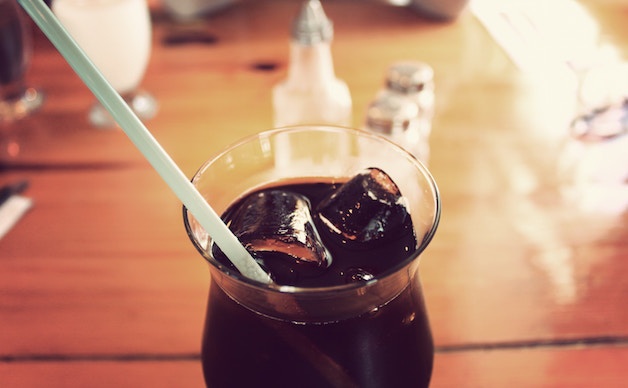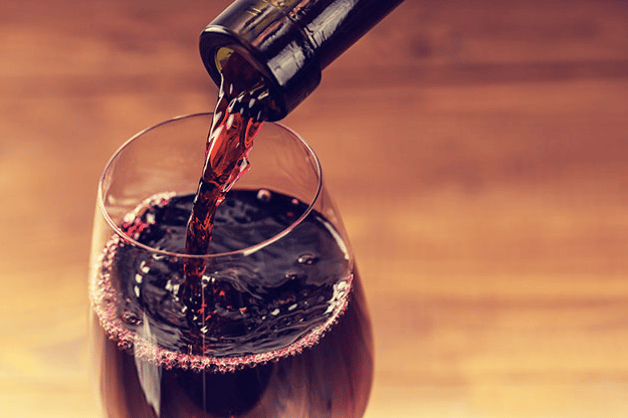
As the summer heats up, you’re probably looking forward to some great outdoor fun in the near future. And whether that means a grueling one-on-one battle on the basketball court or a casual stroll around your local park, chances are really good it’s going to be followed by a refreshing sip of something cold.
Sure, we enjoy an assortment of beverages year-round. But in the summertime, more heat causes higher perspiration, and this loss of water naturally makes us thirstier. For many people, this can mean grabbing something quickly without giving it much thought. And that’s why something as simple as which drink we choose can have an unexpected impact on our oral health.
So, before you select a tooth-damaging concoction, let’s briefly discuss six drinks that could harm your oral health this summer:
Soda
Yes, you knew it had to be on the list, and it’s #1 for a reason.
Traditional soda, like cola, root beer, and ginger ale, is loaded with sugar. The major brands popular in the U.S. range from around 30-60 grams of sugar per can or bottle. 60 grams of sugar is about 15 teaspoons, or roughly ⅓ of a cup of granulated sugar.
In addition to the high sugar content, most sodas are highly acidic in their own right. That combination of sweet and tart is what makes them so irresistible to our taste buds. But, for your teeth, it’s a powerful one-two punch that can do lasting damage.
 Sugar is one of the worst culprits, because it provides ample fuel for the bacteria that naturally exist in your mouth. As sugar coats your teeth, the bacteria flock to the tooth surface. The byproducts of this interaction include acids that can penetrate your tooth’s protective enamel relatively quickly.
Sugar is one of the worst culprits, because it provides ample fuel for the bacteria that naturally exist in your mouth. As sugar coats your teeth, the bacteria flock to the tooth surface. The byproducts of this interaction include acids that can penetrate your tooth’s protective enamel relatively quickly.
However, soda’s acidic content does its own damage as well. Every swallow lowers the pH level in your mouth, and enamel is in danger of corrosion any time your mouth’s pH level is below 5.5. That’s why switching to sugar-free or low sugar sodas doesn’t remove the threat to your oral health. While artificial sweeteners don’t feed your mouth’s bacteria, the acid in the soda can still wear down your enamel.
These same principles apply to other popular sweet beverages, whether carbonated or not, like energy drinks, sports drinks, sweetened iced teas, and the like.
Coffee
Starting your day with a hot cup of joe is standard operating procedure for most Americans. But did you know that coffee can stain your teeth significantly, especially if you drink a lot of it throughout the day?
The same substances that give coffee its distinctive dark brown color coats your teeth with every sip. In addition, coffee is acidic as well, so it can contribute to tooth decay the same way soda can.
Finally, many people enjoy their coffee with sugar or some sort of sweetened creamer. Again, sugar and acid becomes a toxic brew for your teeth.
Tea
"Sugar is one of the worst culprits, because it provides ample fuel for the bacteria that naturally exist in your mouth. As sugar coats your teeth, the bacteria flock to the tooth surface."
You may think, “if I shouldn’t have coffee, I guess I’ll switch over to tea.” Not so fast.
Tea can be a very healthy alternative to coffee with its antioxidant levels and its connection to digestive health. It also provides a milder caffeine jolt, so it can be better for the nerves as well. But, unfortunately, the same issues that got coffee on this list apply to most teas as well.
With the exception of the lightest of white and green teas, tea can also create very resilient stains on your teeth. It’s also acidic, (although not quite as acidic as coffee). And, if you sweeten your tea with sugar, you’re running into the acid/sugar combo again.
Wine

Doctors have long been aware of the health benefits of the moderate consumption of red wine on a daily basis. It aids the immune system, improves cardiovascular health, helps eliminate free radicals in the blood, and may aid digestion as well.
But, once again, it’s an acidic liquid with a fair amount of sugar in it. Red wine is loaded with tannins that create a heavy stain on your teeth. And, switching to white wine isn’t the best option, as white wine often tends to be sweeter and more acidic than red.
Fruit juice
We’ve already discussed the issues associated with wine, coffee, tea, and anything that resembles soda if you’re hoping to maintain a truly healthy lifelong smile. Surely something as delicious and healthy as pure fruit juice will be alright!
Well, not exactly. And — you guessed it — it’s because nearly all fruit juice is loaded with both acid and sugar. Despite all its other health benefits, fruit juice can harm your teeth.
Bottled water
What?! Even bottled water can harm your teeth? Technically, no, bottled water isn’t going to hurt your teeth. In fact, water is hands down the healthiest and most necessary beverage on this list to consume.
However, if you’re going to drink water, tap water, which is both naturally and artificially fluoridated in most communities throughout the country, has a host of natural minerals in it that are stripped out of bottled water during the purification process.
Comparing the two options, safe tap water can potentially do your teeth more good, and it’s just as refreshing, not to mention cheaper.
A more balanced conclusion
Before you hesitate about consuming various beverages other than water, remember: None of these drinks are going to do instant, irreparable harm to your teeth.
Even the highest levels of sugar and acid found in soft drinks and the staining compounds from tea, wine, and coffee, require periods of sustained exposure before your enamel starts losing the battle and ends up stained and/or decaying.
That brings us to the real key lesson of this article: Limit the amount of time the drink can affect your teeth, and you manage the impact on your oral health.
Quite simply, if you make a habit of drinking a glass of water or rinsing your mouth within a few minutes of finishing a cup of coffee or tea, a can of soda, or a glass of wine, you limit the damage from that beverage. Brushing and flossing daily, as you normally should for the sake of your oral health, will also help stave off any long-term effects of the sugar/acid combo present in many tasty drinks.
You likely don’t need to abstain from all but water in order to maintain your healthy smile. Instead, simply remember to refresh your mouth after each time you indulge, and your natural enamel protection will do the rest. Are you planning for your bi-annual dental visit this summer? If cost is preventing you from making the appointment, find out how you can save on dental care with a dental discount card.

